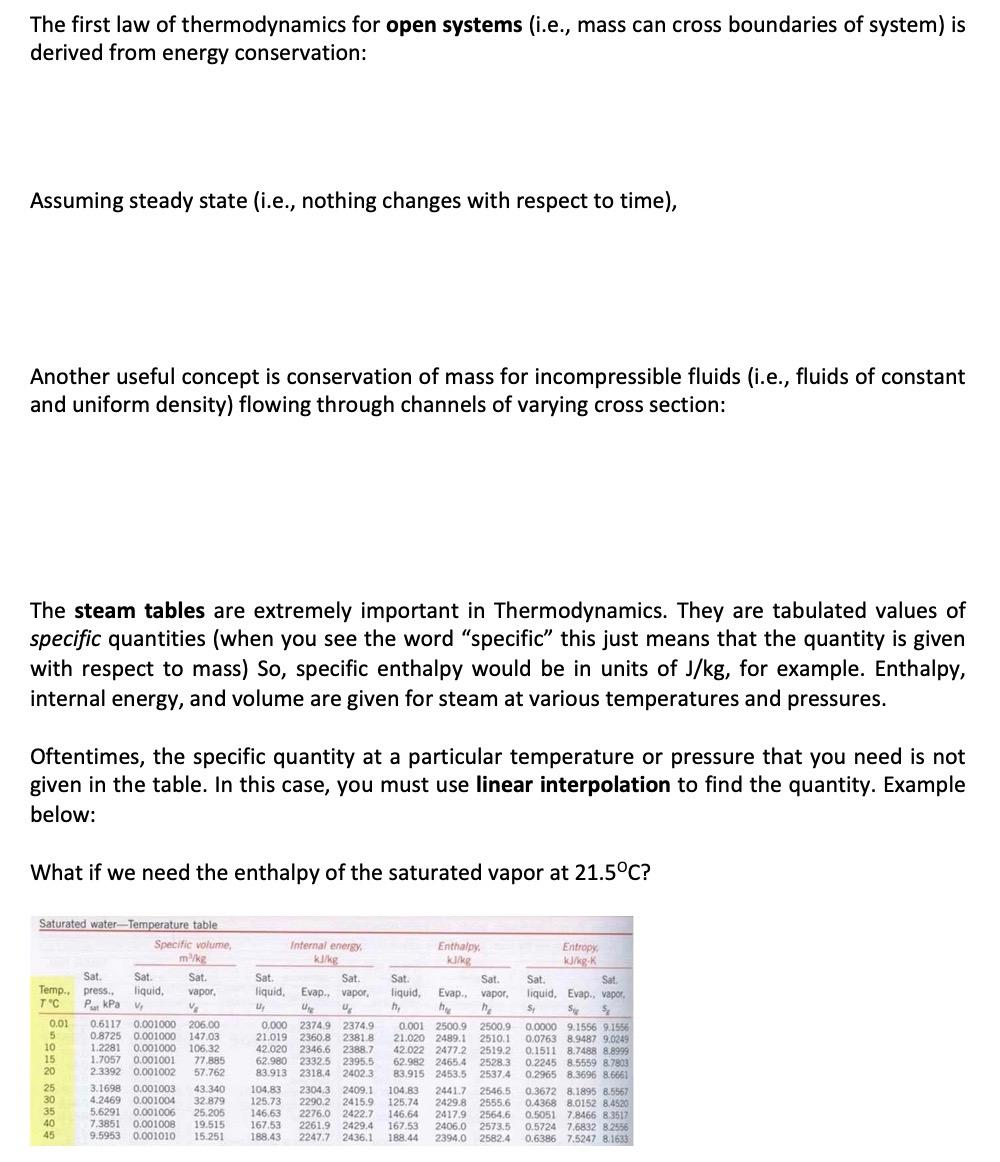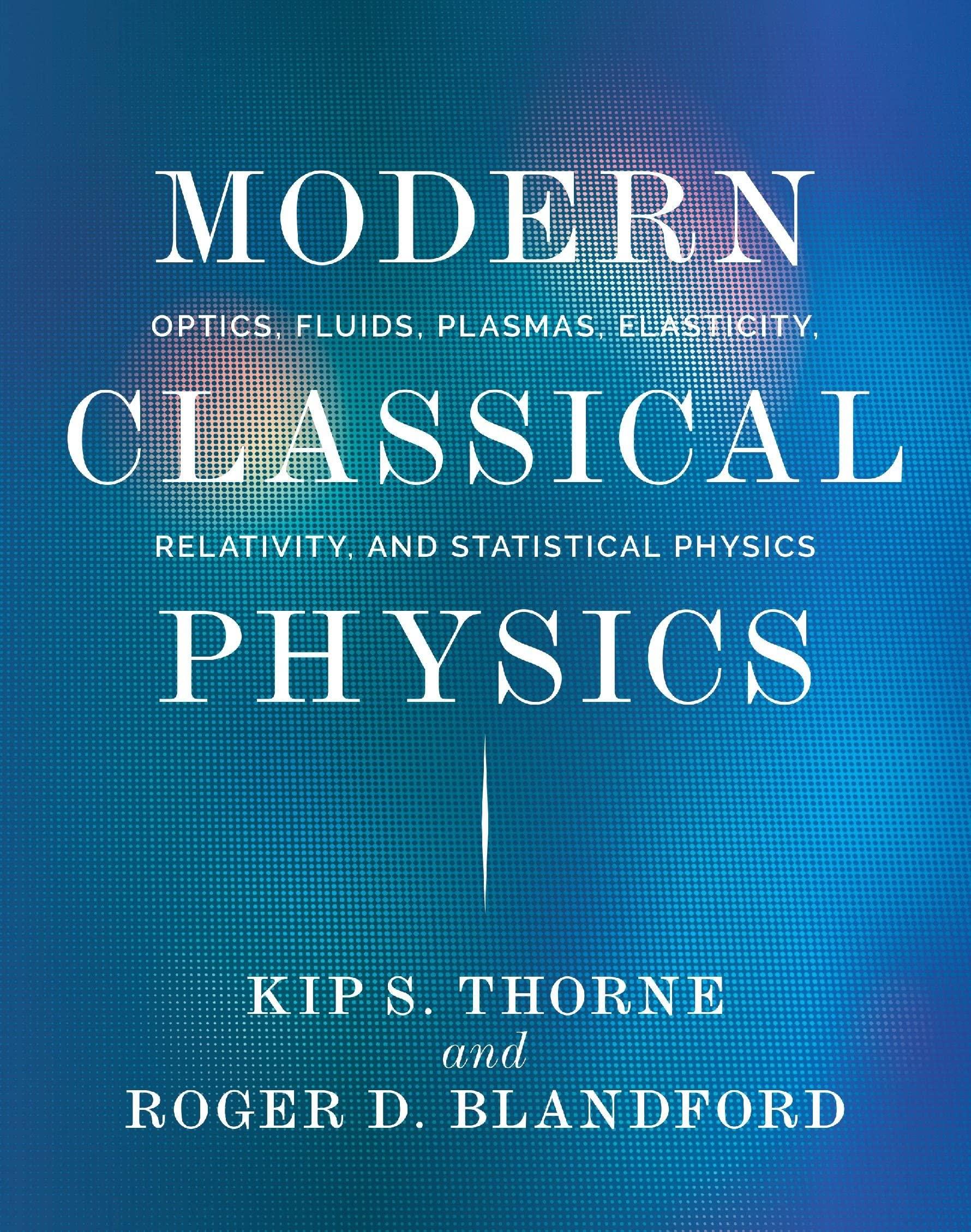Answered step by step
Verified Expert Solution
Question
1 Approved Answer
The first law of thermodynamics for open systems (i.e., mass can cross boundaries of system) is derived from energy conservation: Assuming steady state (i.e.,

The first law of thermodynamics for open systems (i.e., mass can cross boundaries of system) is derived from energy conservation: Assuming steady state (i.e., nothing changes with respect to time), Another useful concept is conservation of mass for incompressible fluids (i.e., fluids of constant and uniform density) flowing through channels of varying cross section: The steam tables are extremely important in Thermodynamics. They are tabulated values of specific quantities (when you see the word "specific" this just means that the quantity is given with respect to mass) So, specific enthalpy would be in units of J/kg, for example. Enthalpy, internal energy, and volume are given for steam at various temperatures and pressures. Oftentimes, the specific quantity at a particular temperature or pressure that you need is not given in the table. In this case, you must use linear interpolation to find the quantity. Example below: What if we need the enthalpy of the saturated vapor at 21.5C? Saturated water-Temperature table Specific volume, Sat. Sat. Temp., press.. PkPa 0.6117 0.001000 0.8725 0.001000 147.03 1.2281 0.001000 106.32 1.7057 0.001001 77.885 2.3392 0.001002 57.762 3.1698 0.001003 43.340 4.2469 0.001004 32.879 5.6291 0.001006 25.205 liquid, V m/kg Sat. vapor, V 206.00 Internal energy, kJ/kg Enthalpy kl/kg Entropy, kJ/kg-K Sat. Sat. Sat. Sat. Sat. liquid, U 7.3851 0.001008 19.515 9.5953 0.001010 15.251 U U 0.000 2374.9 2374.9 21.019 2360.8 2381.8 42.020 2346.6 2388.7 62.980 2332.5 2395.5 83.913 2318.4 2402.3 104.83 125.73 146.63 167.53 188.43 Evap., vapor, liquid, Evap., vapor, he 0.001 2500.9 2500.9 21.020 2489.1 2510.1 42.022 2477.2 2519.2 62.982 2465.4 2528.3 83.915 2453.5 2537.4 Sat. liquid, Evap., vapor, Sy Sig SE 0.0000 9.1556 9.1556) 0.0763 8.9487 9.0249 0.1511 8.7488 8.8999 0.2245 8.5559 8.7803 0.2965 8.3696 8.6661 2304.3 2409.1 104.83 2441.7 2546.5 2290.2 2415.9 125.74 2429.8 2555.6 2276.0 2422.7 146.64 2417.9 2564.6 2261.9 2429.4 167.53 2406.0 2573.5 2247.7 2436.1 188.44 2394.0 2582.4 0.3672 8.1895 8.5567) 0.4368 8.0152 8.4520) 0.5051 7.8466 8.3517 0.5724 7.6832 8.2556 0.6386 7.5247 8.1633
Step by Step Solution
There are 3 Steps involved in it
Step: 1

Get Instant Access to Expert-Tailored Solutions
See step-by-step solutions with expert insights and AI powered tools for academic success
Step: 2

Step: 3

Ace Your Homework with AI
Get the answers you need in no time with our AI-driven, step-by-step assistance
Get Started


